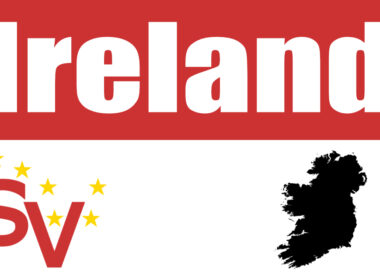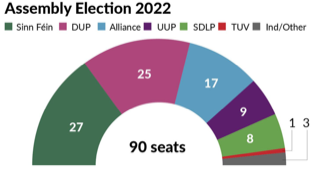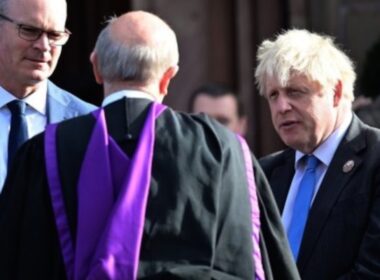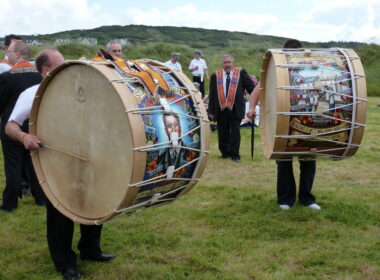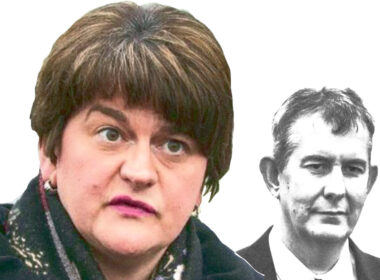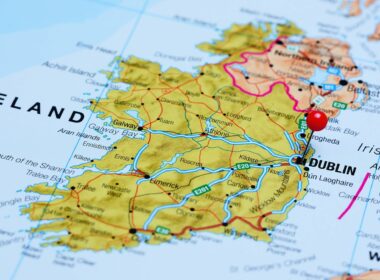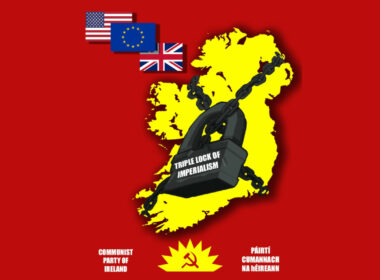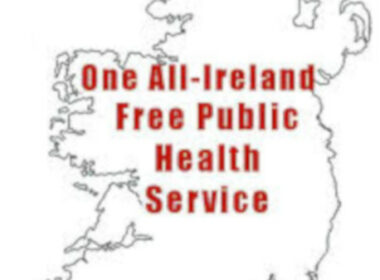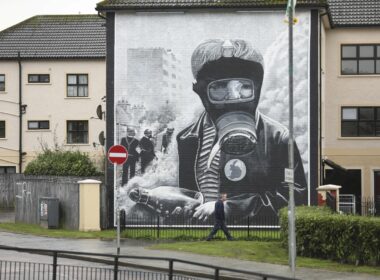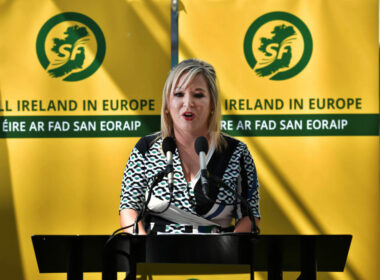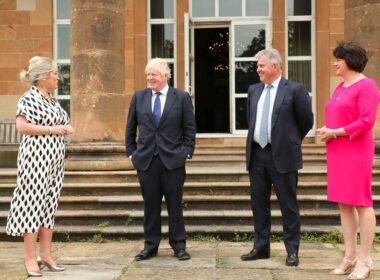The Socialist Voice is a useful medium for critical debate on many issues, for advancing the self-determination of the people of Ireland. It is not for promoting or ignoring British colonialism in Ireland. An article, “Mobilising Northern Workers”, in the May edition completely ignored the savagery and injustice of the […]
Tag: Northern Ireland
Imperialism’s attacks on Irish neutrality
In January, Policy Exchange, a right-wing British think tank produced a report entitled, “Closing the Back Door: Rediscovering Northern Ireland’s Role in British National Security.” It has a foreword by two former British Defence Secretaries and is endorsed by a former First Sea Lord and Security Minister. It can therefore […]
Resisting the Slippery Slope to Water Privatisation in the North – Again!
As part of the British Tory Government’s punishment budget last Autumn, aimed at putting the squeeze on the DUP to get them back into the Executive, the Secretary of State for Northern Ireland took the opportunity to direct all Departments to launch public “consultations” on measures to support “budget sustainability” […]
Peace and pacification
In April, the 25th anniversary of what was called the “Good Friday Agreement” will be marked. The name “Good Friday” was no doubt the invention of the best media and advertising gurus, who were asked to come up with a catchy title for it, and they did. The agreement has […]
Assembly elections: Opening new opportunities for struggle
A historic step forward was taken on the road to Irish freedom when the nationalist party Sinn Féin won more seats in the recent Northern Ireland Assembly than the pro-British Democratic Unionist Party. Sinn Féin secured 29 per cent of the popular vote, to become the largest party, with 27 […]
A Spectre is Haunting Ireland
The spectre of a democratic and progressive country What on earth was that event last month in St. Patrick’s Cathedral, Armagh, all about? We were told that it wasn’t a celebration of partition, nor a commemoration of the hundredth anniversary of the foundation of the Six-County political entity. Rather, it […]
People and communities suffer as a consequence of the “sectarian game”
There was a great discussion recently with representatives of the Protestant/loyalist community about sectarianism and its roots, among other things, and the obvious effects on people and our society. That set me thinking about potential strategies. Socialists and republicans lay the blame for sectarianism at the door of British colonialism […]
Class politics—not 21st-century Walkerism
One hundred and ten years ago James Connolly opened up what became known as the Connolly-Walker controversy with the following sentence: “All thoughtful men and women who observe the political situations of their countries must realise that Ireland is on the verge of one of the most momentous constitutional changes […]
Change is inevitable
In this centenary year of the foundation of the northern six-county state, the crisis within unionism appears to increase almost weekly. Standing out above the rest was the messy defenestration of the DUP leader Arlene Foster, because, difficult as it may be to believe, she was considered too liberal. The […]
What type of united Ireland do we want?
It’s easy to misinterpret what’s published in newspapers, and particularly so when the narrative appears favourable to a reader’s own point of view. However, when three pillars of the British establishment’s conservative press publish articles raising doubts about Northern Ireland’s future within the United Kingdom, and all published within the space of one week, it is at least worth reflecting on the significance of this phenomenon.
Brexit and national unity
After nearly half a century of membership of the EEC and then the EU, Britain finally left on 1 January 2021. The period leading up to its departure was heavily choreographed, with displays of brinkmanship, the stock in trade of the European imperial powers of Britain, France and Germany and the other old imperial states of Europe that make up the core of the EU.
The fact that the particular characteristics of Brexit arose out of an inter-imperialist conflict and were determined by the most right-wing forces in Britain may have significantly
Partition: 100 years of landlordism
Housing policy in both jurisdictions in Ireland has failed the citizens abysmally. One of the sources of communal revolt in the North was the unfair distribution of housing. As only ratepayers and their spouses had a vote in local elections, priority in housing was given to the unionist community, to allow them to control the councils.
Campaign for an all-Ireland health service
The campaign for an all-Ireland public health service, fully funded and free at the point of entry, is gaining momentum around the country. Already three district councils in the North have supported the demand
Little reason to celebrate the state of Northern Ireland
The six county state of Northern Ireland will reach its hundredth birthday in May. The British government, with enthusiastic support from Northern unionists, is making preparations to celebrate the anniversary.
Though claiming to emphasise the future rather than its history, it is inevitable that the nature of the Northern state, past, present, and future, must come under scrutiny. With even the best will in the world it is …
Is Sinn Féin’s vision for a united Ireland just a blind alley?
Sinn Fein published their discussion document “Economic Benefits of a United Ireland”1 in November 2020; and, seeing that it’s a discussion paper for “contributing to the ongoing and exciting debate around a United Ireland,” it’s a worthwhile exercise to analyse and to critically engage with Sinn Féin’s vision for a united Ireland.
Two significant factors, Brexit and covid-19, have really accelerated the debate on reunification; and now, as stated in the document, “it is not a question about whether we can afford Irish Unity the fact is that we
Nothing to celebrate
HUNDRED years after the partition of Ireland, a survey carried out by the Nevin Economic Research Institute on the annual earnings of workers in the North has exposed the reality for workers living in this British colony.
Wages in the North are much lower than any region in Britain, as are those of workers on low pay, with a quarter of all workers earning less than the living wage.




